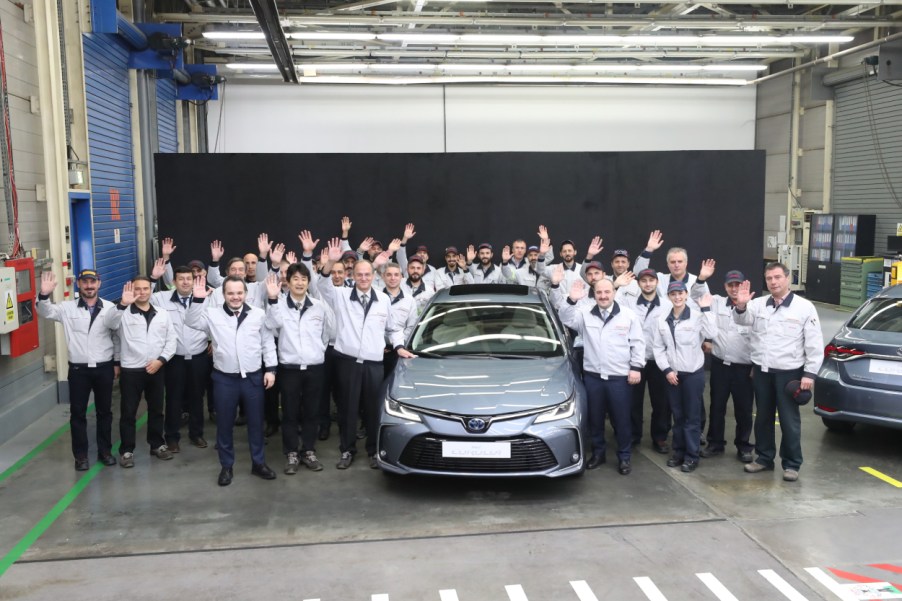
Toyota Is Developing a New Way To Make Roads Safer
Since 2011, the Toyota Collaborative Safety Research Center has worked to prevent traffic accidents and make driving safer for all. The center partners with hospitals, universities, research institutions, and federal agencies to develop advanced safety technologies for the automotive industry.
Pujitha Gunaratne, a principal scientist at the Toyota Collaborative Safety Research Center, recently spoke to the Toyota Newsroom about efforts to predict which drivers will have a heart episode while driving and how automotive technology can help make conditions safer.
Toyota’s research to predict driver heart episodes
Dr. Gunaratne and his team are creating algorithms that could predict and recognize dangerous heart episodes that happen while someone is driving. If a driver has a heart problem while driving, it could lead to a traffic accident, endangering the driver’s life and the lives of others.
It’s hoped that the research by Dr. Gunaratne and the Toyota Collaborative Safety Research Center will someday result in in-vehicle cardiac monitoring systems.
The research team is currently collecting cardiac data from study participants who have heart anomalies. The research is being conducted in partnership with the University of Michigan Biomedical and Clinical Informatics Lab. The two organizations worked with recently discharged patients with cardiac conditions.
The former patients wore sensors throughout their day, including while driving, to collect heart rate data that will inform Toyota’s prediction algorithms being developed to predict cardiac episodes.
How the research could make roads safer
According to Toyota, heart disease is the leading cause of death in the United States for men and for women, causing one out of four deaths. Coronary Artery Disease is the most common type of heart disease, and it can cause an arrhythmia.
The most common arrhythmia is Atrial Fibrillation (AFib), which can lead to fainting or strokes. Since about 6.6 million Americans have AFib, there are a lot of people at risk of a medically related traffic accident if they have an incident while driving. Some countries prevent people with AFib from driving.
Coronary Artery Disease can also lead to a heart attack. A 2009 National Highway Traffic Safety Administration study found that 11% of crashes were connected to heart attacks. Toyota says its goal is “mobility for all,” so it is working to reduce traffic accidents for people with heart problems.
The team at the Toyota Collaborative Safety Research Center hopes that eventually there will be in-vehicle cardiac monitoring systems. These sensors could recognize a heart problem and then either alert the driver or stop the vehicle and request assistance, if the driver were incapacitated.
Could heart monitoring technology be widely adopted in vehicles?
Toyota’s ultimate goal is for its research to help in the creation of technology that can warn when a driver will have a heart problem. The technology isn’t ready for implementation yet though, since the research is currently in the final phase of the three-year project.
Dr. Gunaratne is pleased with the results so far though. He says Toyota is working to improve its algorithms faster by setting up partnerships to increase the amount of data being collected and analyzed.
The next research project will look at other ways to collect heart data from drivers without asking them to wear devices. Technology could be added to vehicles, possibly using touch or non-contact monitoring options located in seats, seatbelts, or steering wheels.
According to CNBC, other auto manufacturers are also working on technology to monitor drivers’ wellness, but these technologies are still in the future with no arrival dates scheduled. Once this tech does arrive, there will also be questions about privacy and driver data.
We all hope our health doesn’t impact our ability to drive safely. However, Toyota is looking for ways to make driving safer for all in the event of a heart problem that impacts our driving capabilities.


